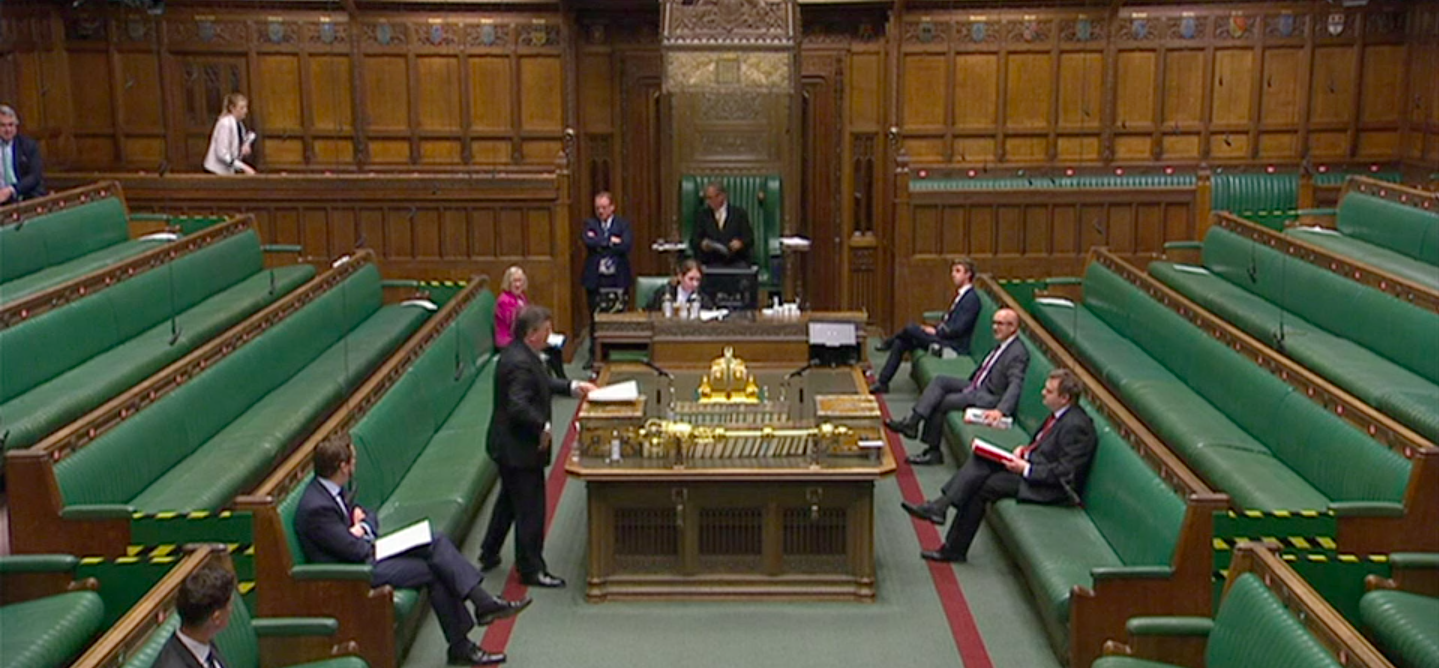The lockdown is putting huge focus on the home. What’s yours like? Big enough for you all? Warm and dry, or cold and damp? How is everyone getting on? Is there love, like a family pet, at the heart of it; or not? Or are you alone — because you want it that way, or has something gone wrong (or just not gone right yet)?
These may seem intrusive questions for a politician to ask (I wouldn’t actually ask a constituent any of that, except about the damp). I raise them now because the lockdown is reminding us that we need a ‘politics of home’. As the Government has recognised (and asked Roger Scruton to help advise), we need to make our houses and flats not just affordable but liveable and beautiful. And fundamentally, we need to help the families that live in them.
This struck me yesterday listening to the Commons debate on the Domestic Abuse Bill (I hoped to speak myself, but wasn’t called). The speeches were heartfelt and, in some cases, traumatic to listen to. But not a single one (I think) mentioned marriage except as an abusive relationship, or the home except as a place of fear and violence.
The Bill brings into law a series of mitigations against violence and coercion in the home. These are all welcome. If we really want to eradicate domestic abuse, however, we need more than mitigations. We need to prevent it. And that means — unless we want to go the full Pol Pot, abolishing the family altogether and rearing our children in common — strengthening and improving the couple relationship.
I founded a charity working with prisoners and ex-offenders. I therefore spent a lot of time with people convicted — or not convicted, but guilty — of domestic violence, usually amid other crimes. And without exception the men I have known who abuse women experienced parental conflict, including violence, as children themselves.
Now, very obviously, not all children of violence become violent themselves. And not all abuse is by men against women (this point was made repeatedly by MPs, in a — to me — weird refusal to accept that physical strength and the desire to rule others are more commonly male traits, and that domestic abuse is their wicked perversion). But the consequence of parental conflict for boys — the increased risk of forming broken and sometimes abusive relationships themselves — is so obvious it justifies a cultural response, or at least some policy.
So: yes to more legal protections against domestic violence; yes to more rights for victims; yes to more police powers; yes to more money for refuges and support services. But also, we need more support for couple relationships. And we don’t just need it to stop violence. We need it because everyone — adults, children, grandparents, in-laws, neighbours, societies and civilisations — does better if people who sleep together, get along together.
At the heart of many homes — and the homes that almost all people aspire to live in — is a couple who have made a lifelong commitment to protect and look after each other; and not to hurt each other. That commitment is so important it has rightly been called a sacrament, something sacred. Life-long couple commitments are so precious that they receive recognition and protection in law, and the acclamation and encouragement of friends and family.
If society is a web or net, marriages are the knots: they hold the thing together; without them the ropes simply slide and tangle. A fiscal and legal system, and a culture, that does not affirm marriages disregards society’s most basic and essential component, and all policy is harder as a result.
But this is the direction of travel. Joanna Cherry MP (SNP) argued yesterday for an end to any residual recognition of households in the welfare system, so people receive benefits as if they were single, independent individuals. This is the trend of an attitude that sees all relationships as inherently unequal and potentially abusive.
We need to go the other way. We will stop domestic abuse at source not by disbanding families further but by making family life better. That means public money for parenting courses, counselling and mediation. It means signals and nudges to undergo marriage preparation courses before the wedding, or ‘marriage MOTs’ at intervals after it. It means fiscal support for households and an end to the couple penalty.
It means not rushing to divorce (as I fear the no-fault Divorce Bill, currently before Parliament, may encourage people to do; this Bill is a good opportunity to introduce some mediation into the process of divorce). It also means making the responsibilities of bringing children into the world – the responsibility to bring them up in it too – clear to men.
Yesterday MP’s highlighted the terrible fact that calls to domestic violence helplines have risen sharply during the lockdown. None mentioned the fact that enquiries for help with relationships — couple therapy, marriage prep etc — have risen too. The online Marriage Course run by the London mega-church Holy Trinity Brompton has nearly 5000 couples — 10,000 people – taking part this month. A pro-family, pro-marriage society is empirically sensible, and it is, I believe, what people want.










Join the discussion
Join like minded readers that support our journalism by becoming a paid subscriber
To join the discussion in the comments, become a paid subscriber.
Join like minded readers that support our journalism, read unlimited articles and enjoy other subscriber-only benefits.
Subscribe